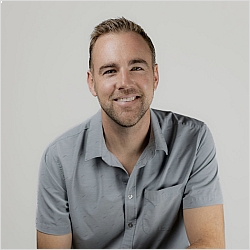What's My Approach to Therapy?
The psychologists at Keil Psych Group specialize in treating anxiety, depression, substance use disorders, and relationship issues. But at the core of all of these symptoms is something more fundamental: the human need for connection.
From the moment we gasp our first breath, we are wired to connect. We are born into relationships—utterly dependent on others for survival. As infants, we learn quickly what pleases or displeases our caregivers. We begin to bury parts of ourselves that provoke anxiety in others and amplify the parts that gain us approval. We absorb not only what happens to us but also what happens between others, internalizing the emotional landscape of our families with the sponge-like perception only children have.
As our inborn temperaments and genetic dispositions collide with these complex interpersonal environments, our personalities form—adaptive patterns, emotional reflexes, and defenses that eventually become so familiar we mistake them for identity. We call it "me."
But this self, so carefully built, doesn’t reinvent itself each time we meet someone new. Instead, we carry these early relational templates into adulthood. We find ourselves playing out the same roles—our mother, our father, our childhood selves—on new stages with new actors. Sometimes this results in functional, fulfilling relationships. Often, it leads to emotional pain we can’t quite name or escape.
We may ask:
Why am I always so lonely?
Why do I keep ending up in the same relationship?
Why can’t I get what I want out of life?
Why does no one ever hear me?
Why is this anxiety always here?
The truth is, we recreate the familiar without knowing it, because it feels like home—even if it hurts.
As adults, we often use our relationships in an unconscious effort to reclaim lost parts of ourselves, to master early fears, or to win love from someone with the same limitations as those who once failed us. Sometimes this works—when a safe partner helps us heal. But often, we end up in painful reenactments, chasing resolution in all the wrong places.
There is no blame here. No one escapes childhood unscathed. As Winnicott said, the goal isn’t perfection, but being “good enough.” Our parents were shaped by their own wounds, just as we are by ours.
Why Therapy?
Therapy is a space where these deeply embedded patterns can be explored, understood, and transformed. In a safe, attuned therapeutic relationship, the unconscious becomes conscious. People reclaim lost feelings, rebuild a coherent sense of self, and develop the ability to care for themselves in new and lasting ways.
At Keil Psych Group, therapy is not symptom management—it’s deep, transformational work.
Yes, symptoms like anxiety, depression, panic, loneliness, and dissociation can and do improve. But real healing involves something more:
The dismantling of self-defeating patterns
The emergence of a more authentic self
The ability to dialogue with yourself in the way your therapist once did with you
A new relationship with your emotions, thoughts, and relationships
Our patients leave therapy with greater self-awareness, confidence, and clarity. They feel more present, more connected to others, and more capable of living a life that reflects their values and desires.
Who We Help
We work with adults, young adults, and teens who are struggling with:
Anxiety
Depression
Trauma and PTSD
Addiction
Relationship Issues
Grief and Loss
Our approach is psychodynamic, systemic, and mindfulness-based. We aim to help people develop deeper understanding, access more of their emotional life, and build new, healthier ways of relating to themselves and others.
A Note from Dr. Keil
Helping people as a psychologist is my soul’s work. I’m a lifelong learner and passionate about mental health, philosophy, and healing. I care deeply about the people I work with and consider it a profound privilege to be invited into their stories.
If you’ve read this far, thank you. This was written straight from the heart and draws from years of training, personal work, and clinical experience. I hope it gives you a sense of who we are and how we think about this work.
Whether you're struggling with something specific or just feeling off and not quite sure why, we’re here. We’d be honored to walk with you on your path toward healing, insight, and meaningful change.





